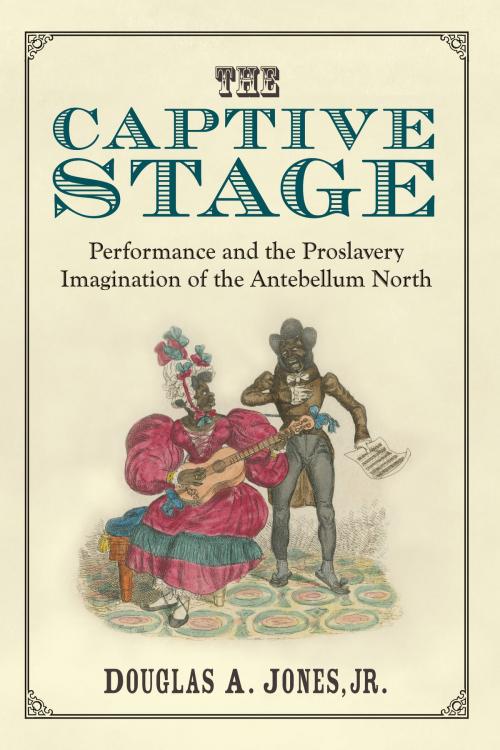The Captive Stage
Performance and the Proslavery Imagination of the Antebellum North
Nonfiction, Entertainment, Performing Arts, Theatre, History & Criticism| Author: | Douglas A Jones | ISBN: | 9780472120437 |
| Publisher: | University of Michigan Press | Publication: | July 9, 2014 |
| Imprint: | University of Michigan Press | Language: | English |
| Author: | Douglas A Jones |
| ISBN: | 9780472120437 |
| Publisher: | University of Michigan Press |
| Publication: | July 9, 2014 |
| Imprint: | University of Michigan Press |
| Language: | English |
In The Captive Stage, Douglas A. Jones, Jr. argues that proslavery ideology remained the dominant mode of racial thought in the antebellum north, even though chattel slavery had virtually disappeared from the region by the turn of the nineteenth century—and that northerners cultivated their proslavery imagination most forcefully in their performance practices. Jones explores how multiple constituencies, ranging from early national artisans and Jacksonian wage laborers to patrician elites and bourgeois social reformers, used the stage to appropriate and refashion defenses of black bondage as means to affirm their varying and often conflicting economic, political, and social objectives. Joining performance studies with literary criticism and cultural theory, he uncovers the proslavery conceptions animating a wide array of performance texts and practices, such as the “Bobalition” series of broadsides, blackface minstrelsy, stagings of the American Revolution, reform melodrama, and abolitionist discourse. Taken together, he suggests, these works did not amount to a call for the re-enslavement of African Americans but, rather, justifications for everyday and state-sanctioned racial inequities in their post-slavery society. Throughout, The Captive Stage elucidates how the proslavery imagination of the free north emerged in direct opposition to the inclusionary claims black publics enacted in their own performance cultures. In doing so, the book offers fresh contexts and readings of several forms of black cultural production, including early black nationalist parades, slave dance, the historiography of the revolutionary era, the oratory of radical abolitionists and the black convention movement, and the autobiographical and dramatic work of ex-slave William Wells Brown.
In The Captive Stage, Douglas A. Jones, Jr. argues that proslavery ideology remained the dominant mode of racial thought in the antebellum north, even though chattel slavery had virtually disappeared from the region by the turn of the nineteenth century—and that northerners cultivated their proslavery imagination most forcefully in their performance practices. Jones explores how multiple constituencies, ranging from early national artisans and Jacksonian wage laborers to patrician elites and bourgeois social reformers, used the stage to appropriate and refashion defenses of black bondage as means to affirm their varying and often conflicting economic, political, and social objectives. Joining performance studies with literary criticism and cultural theory, he uncovers the proslavery conceptions animating a wide array of performance texts and practices, such as the “Bobalition” series of broadsides, blackface minstrelsy, stagings of the American Revolution, reform melodrama, and abolitionist discourse. Taken together, he suggests, these works did not amount to a call for the re-enslavement of African Americans but, rather, justifications for everyday and state-sanctioned racial inequities in their post-slavery society. Throughout, The Captive Stage elucidates how the proslavery imagination of the free north emerged in direct opposition to the inclusionary claims black publics enacted in their own performance cultures. In doing so, the book offers fresh contexts and readings of several forms of black cultural production, including early black nationalist parades, slave dance, the historiography of the revolutionary era, the oratory of radical abolitionists and the black convention movement, and the autobiographical and dramatic work of ex-slave William Wells Brown.















